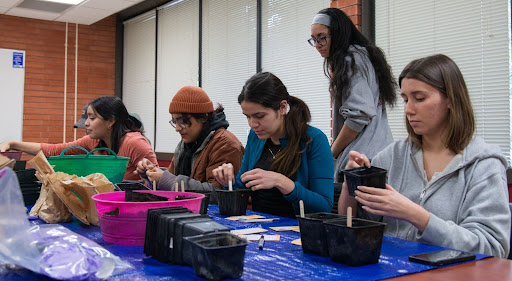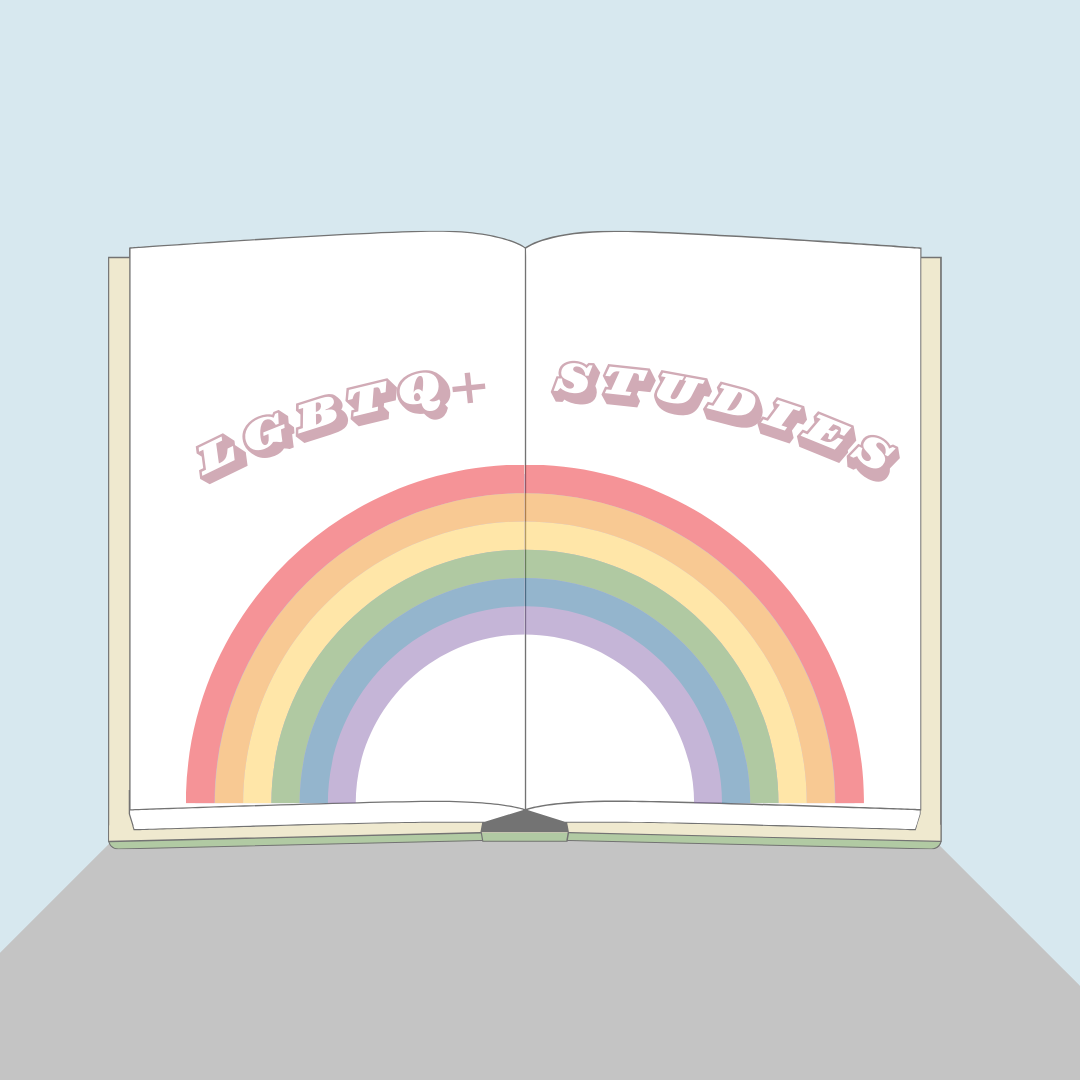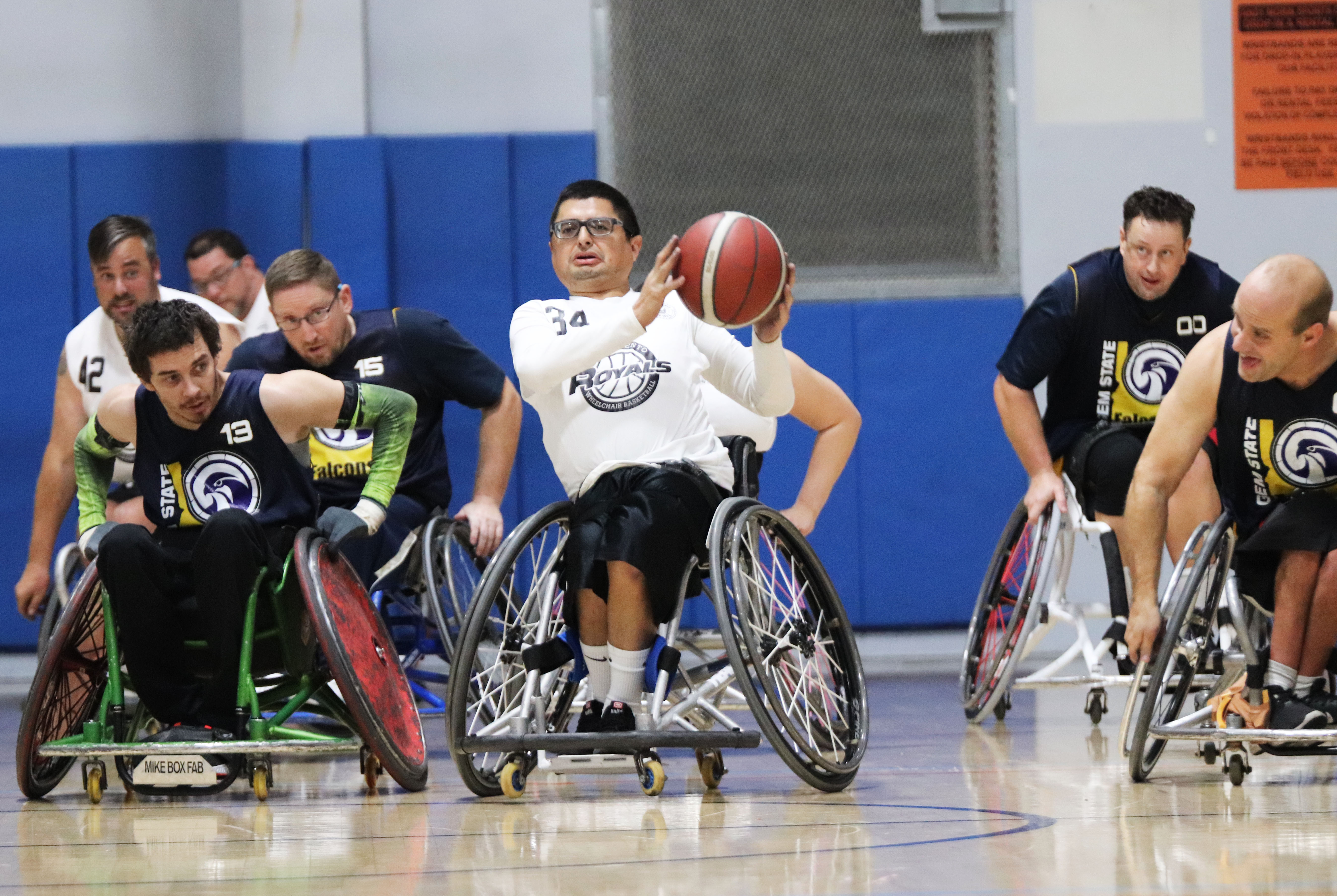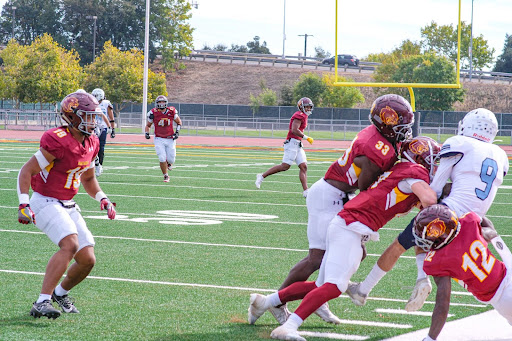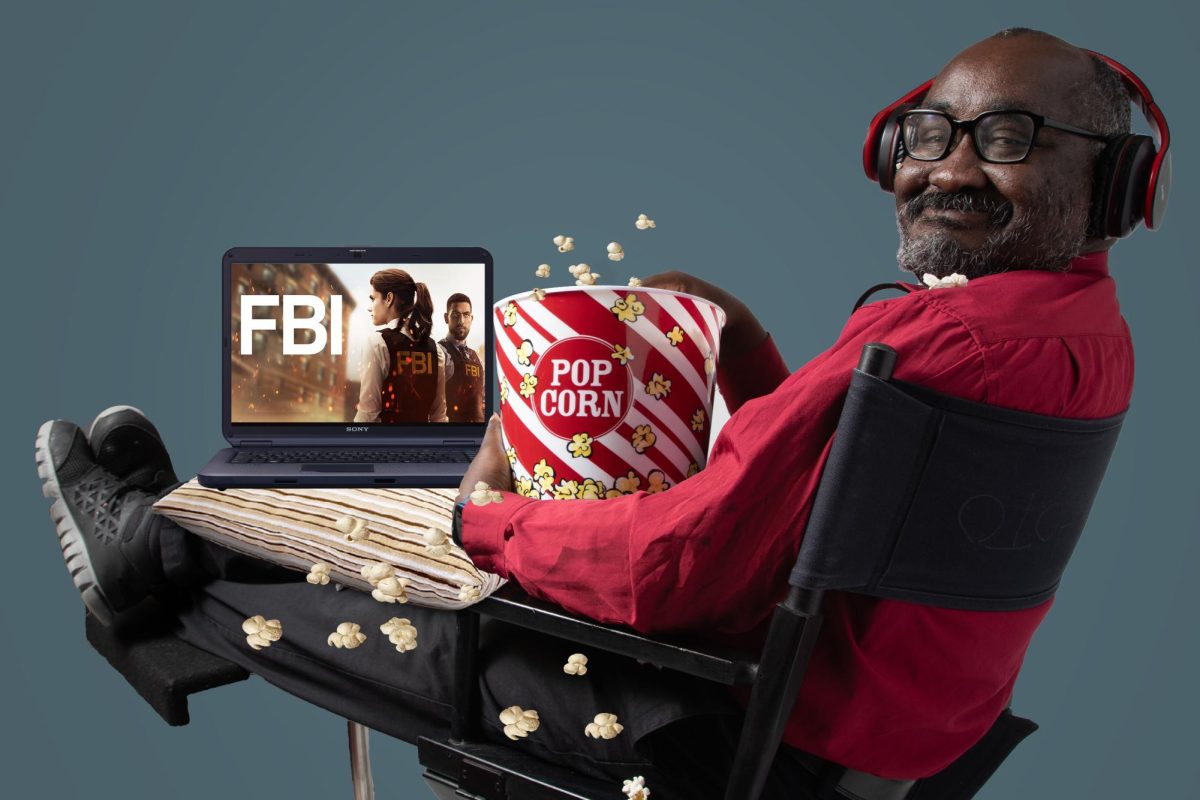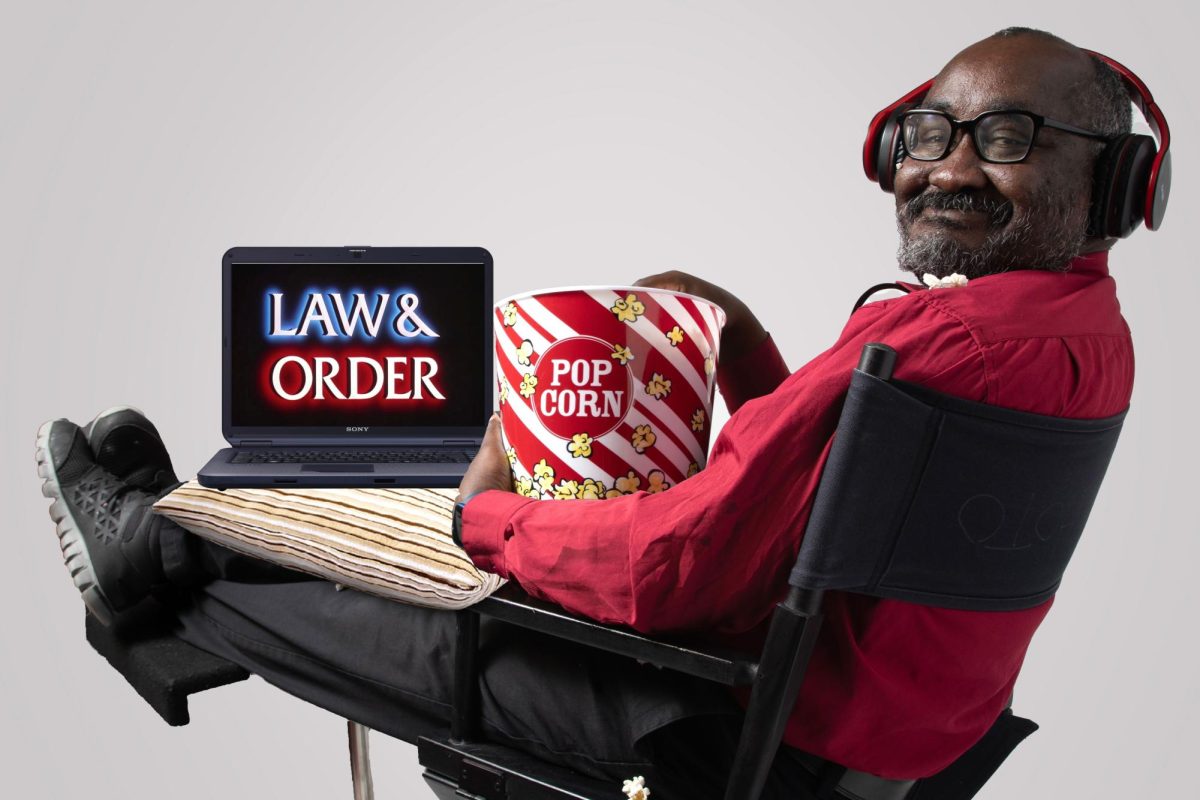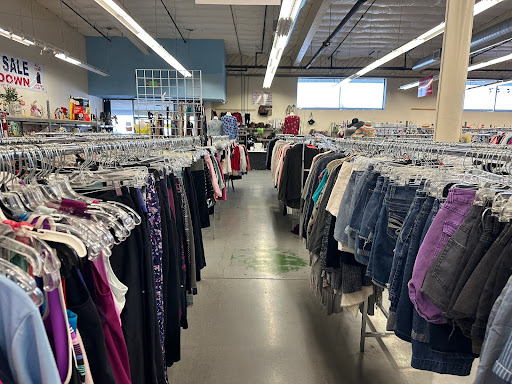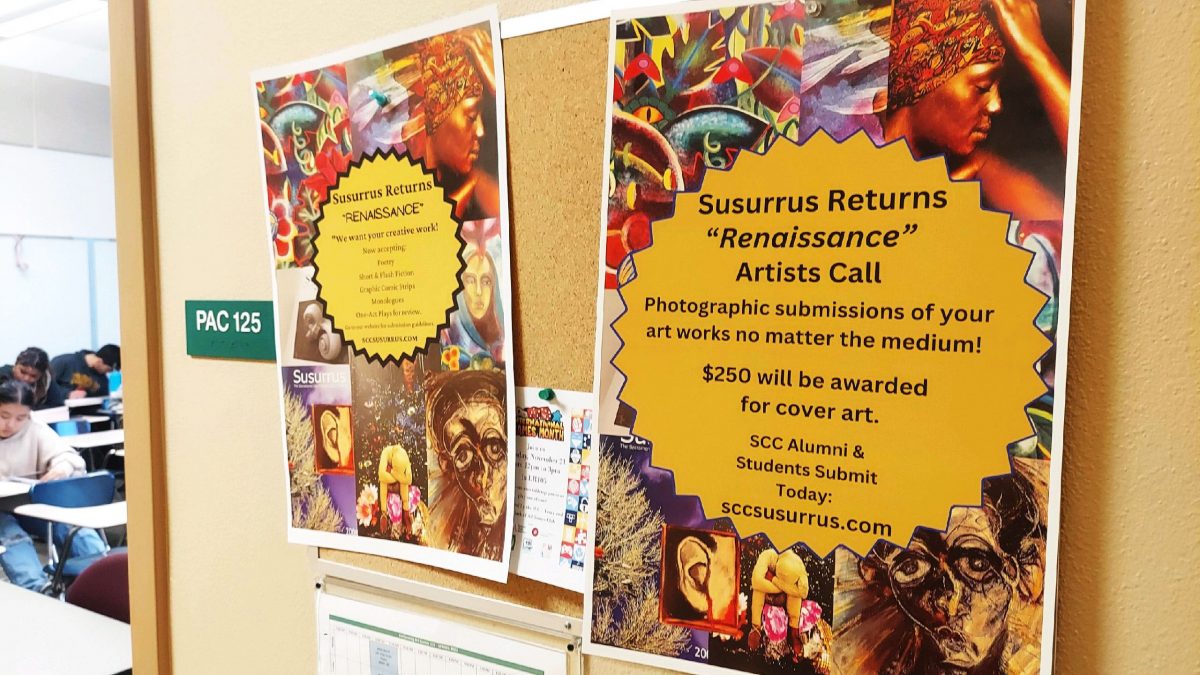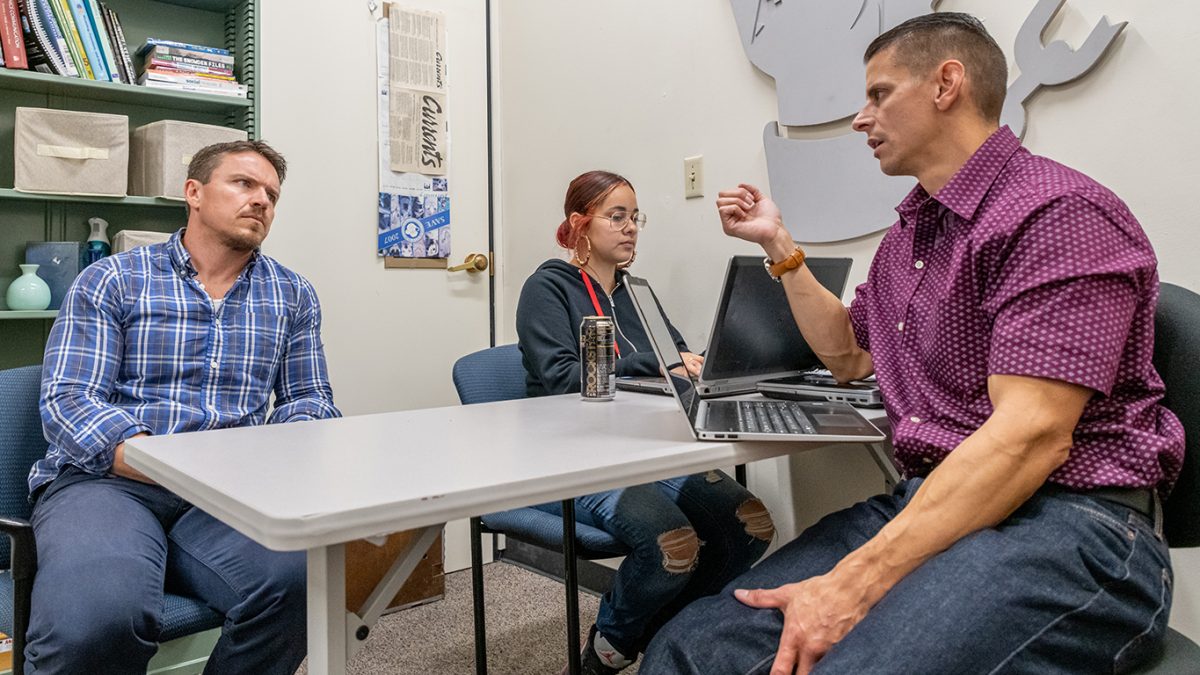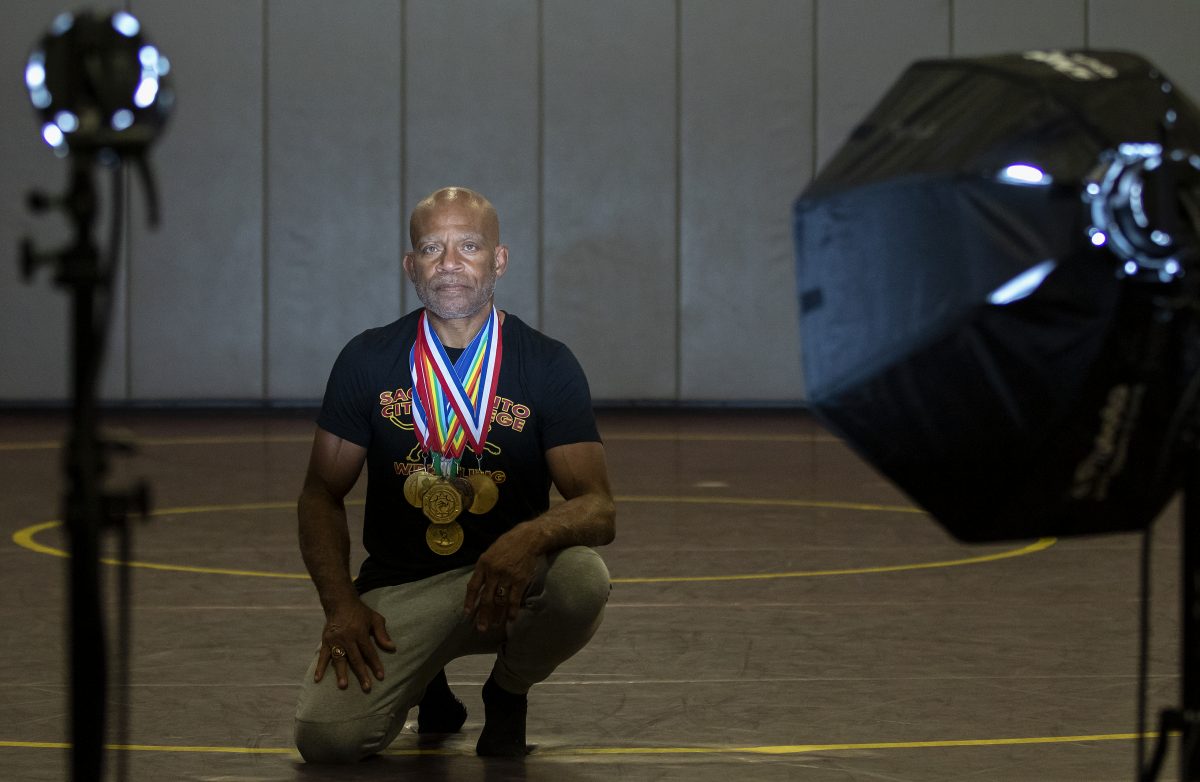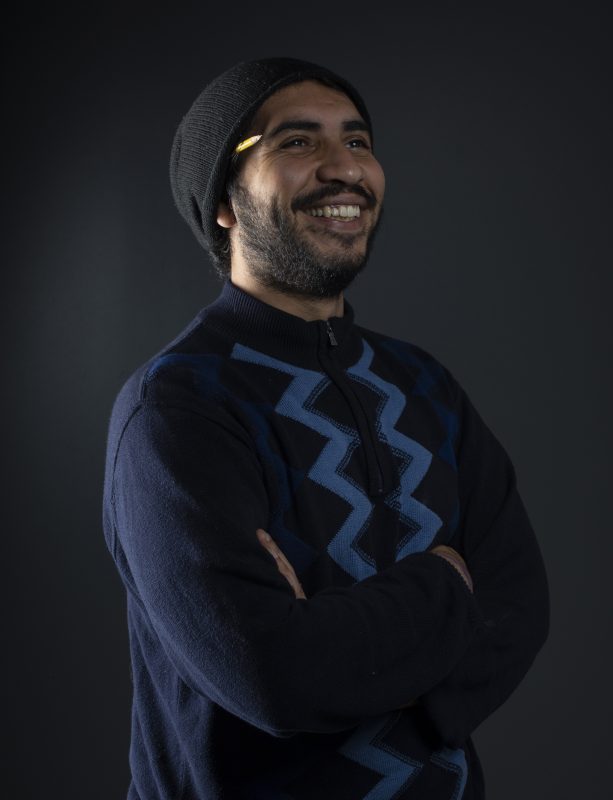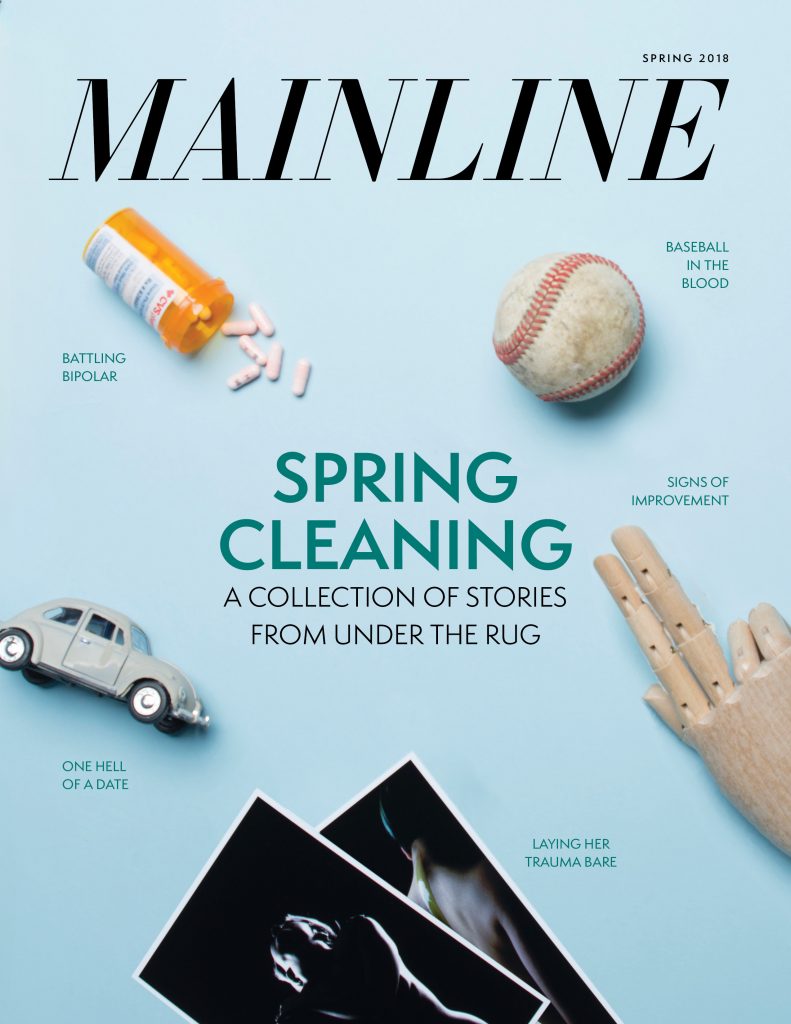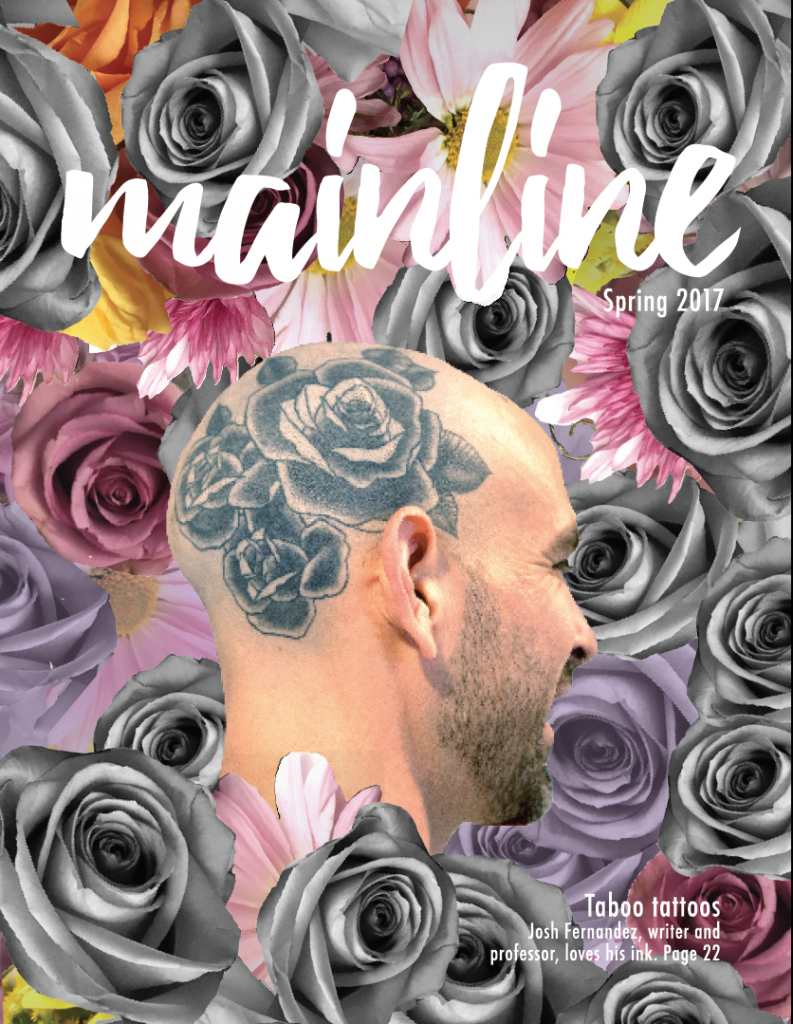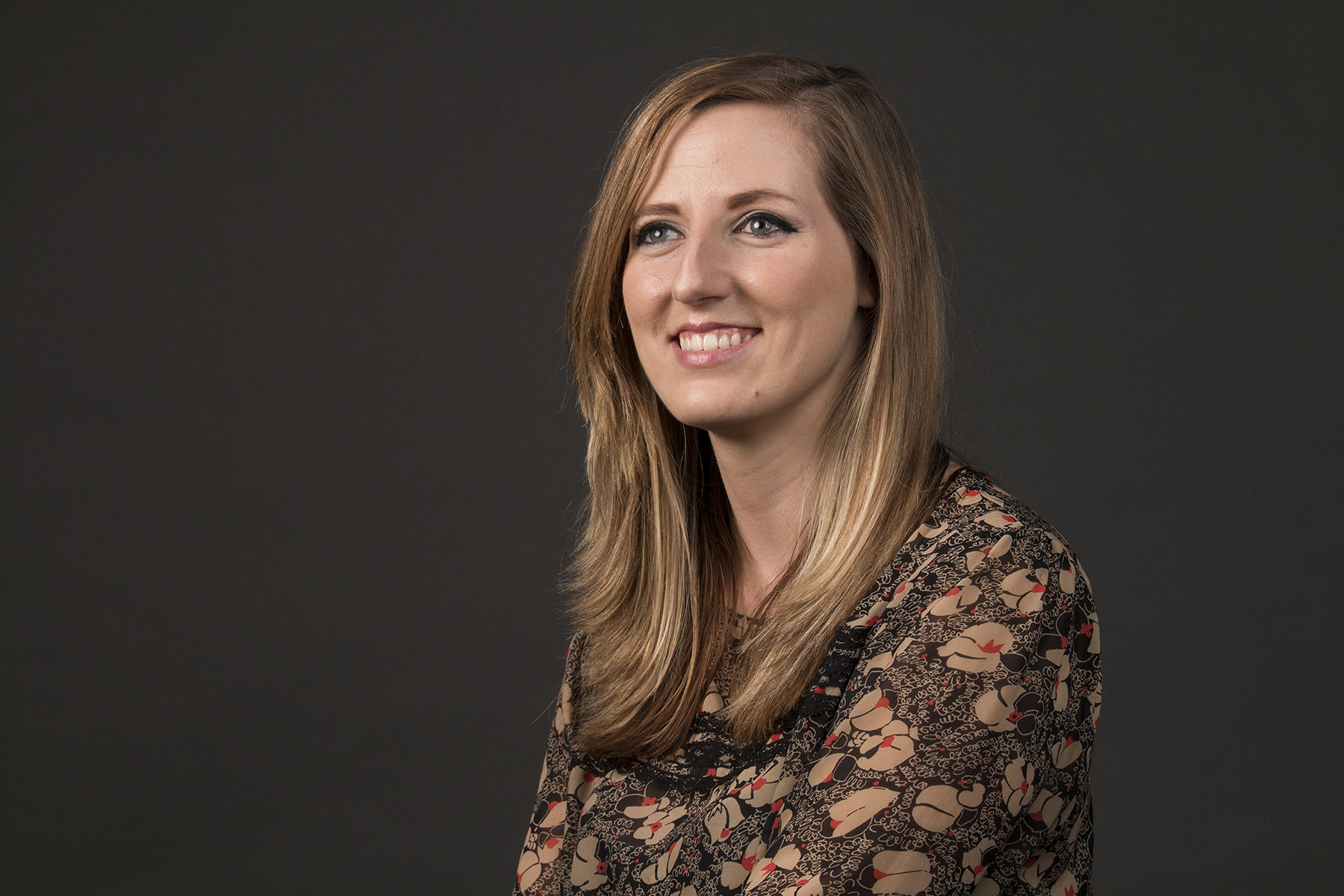
The sun was setting on a rundown apartment on Lake Boulevard in Redding. It was the bad side of town, riddled with sex offenders, drug dealers and homeless people. I sat in the kitchen of an apartment with no furniture, staring at tile that had peeled off the wall, as if it were trying to escape, along with the rest of us. Dust from the 100-degree day settled on the floor.
“Run!” yelled one man from the corner, trying to pry open a window in the back bedroom. “The cops are coming!”
Nearly a dozen people flooded out the tiny window. I nervously stood, beckoning my two friends, Melissa and Desserae, to come with me. They were sisters: Melissa was my age, 16. Desserae was only 14.
A man screamed, yelling in a language I couldn’t understand, but still, his meaning was clear.
“Hide the pipe! Hide the pipe! Who has the baggy?” another man shouted, frantically pawing through a stained duffel bag, his long, pale, skinny fingers fumbling at nothing.
Wailing sirens drew closer as we all scrambled to get our things, some more valuable than others. It was every man for himself, except for Melissa, Desserae and me. As we fell out of the window and onto the gravel, we ran for the street and started walking, pretending that everything was just fine.
And for the most part, it was.
For the cops, it was just another routine call to roust a bunch of homeless drug addicts out of a drug den. For the landlord, it was another routine call from neighbors saying the music was too loud. And for us — some homeless, some addicted, some criminal — it was just another day of the monotonous routine of living on the run.
I’ve never had an addictive personality and was always pretty capable of making the smart decision. But even I went down a road that not many escape and most people judge so harshly, not understanding how unlikley it is for anyone to make it out.
When I was 15, my family home burned down in a massive wildfire, just two years after my stepfather died from a heart attack. Until then, I was a straight A student who dreamed of going to Ivy League colleges, being a renowned lawyer and policymaker. Granted, I was always concerned about my mother’s ability to make decisions, both on my behalf and her own. My mother, always encouraging, would simply say, “It’s meant to be” or “If it’s God’s will.” She never worried that anything would go wrong until it was too late.
By the time the house burned down, it was too late.
My mother, a victim of mercury poisoning and an epileptic, received $1,200 a month for her disability. Five hundred dollars went to rent, and the remaining $700 had to cover our bills, food and life’s emergencies. This was how we lived after my stepfather, the only father I had ever known, died. He had been the breadwinner, my mother always at his side. A pension for smoking and unhealthy eating habits put him in an early grave at 53.
My biological father was a heroin addict and gang member with a serious anger problem, nearly 30 years older than my mother. She always told me she thought he was dead, which I assumed to be true. I wasn’t even sure he knew that my mother was pregnant with me — she didn’t know until she was five months along. A mutual friend of my biological father told me he had other children, although he didn’t pay much attention to them. The only thing I knew about him was his name — Charles Marlow — and that I probably look a lot like him because I don’t look a thing like my mother.
After the house burned down, there was no renter’s insurance. There was no backup plan, no emergency fund. My mother could no longer provide for me, so we were forced to go our separate ways.
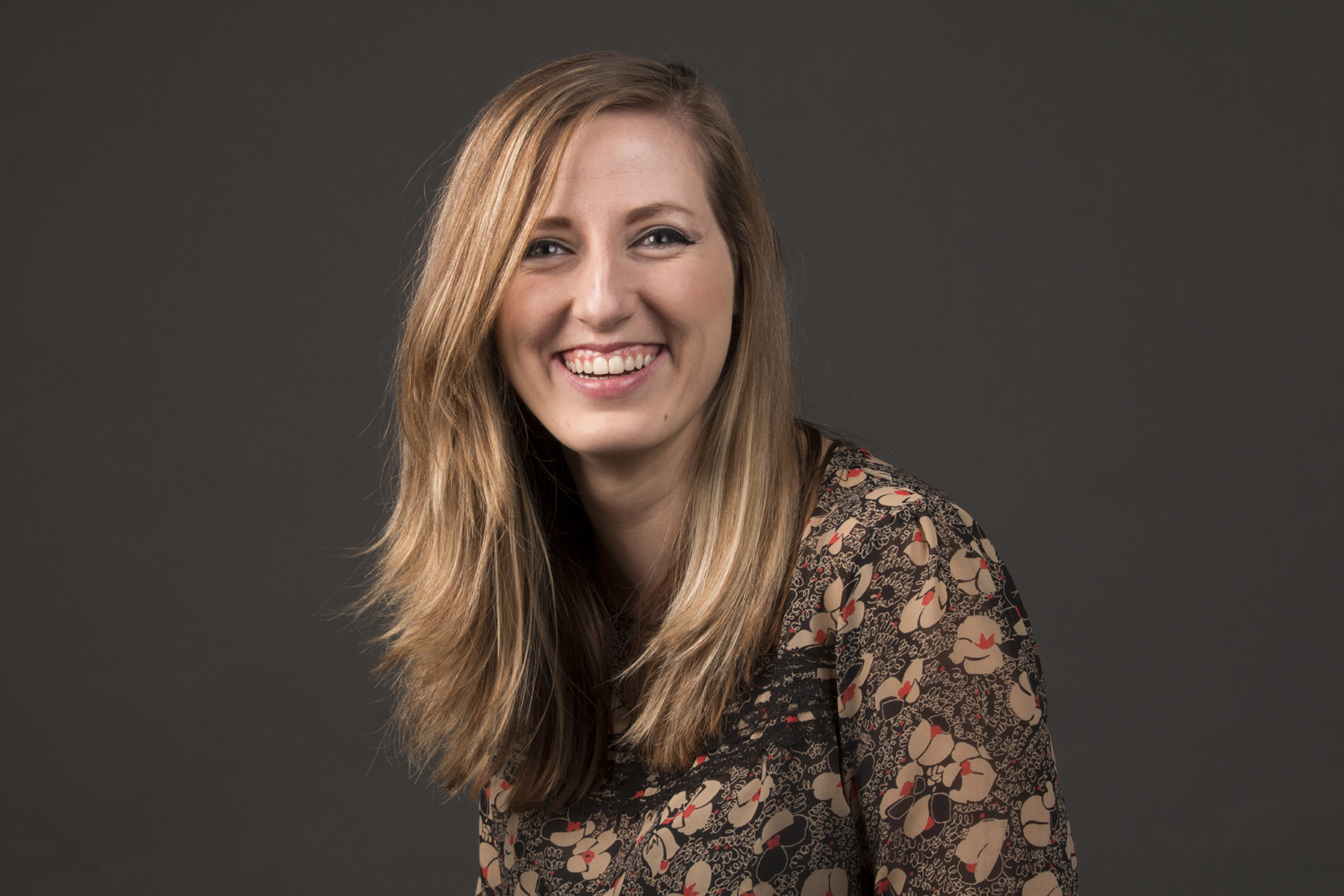
After we parted, my mother lived in a tiny trailer on a good friend’s property with no hot water and no real kitchen. She boiled water to take baths and used a tiny microwave and camper stove to heat her food. I only visited her there twice during our separation. I felt so terrible — I couldn’t stand to see her that way — but I could barely provide for myself as a homeless teen whose grades were tumbling down a steady slope.
I decided to stay in Redding to attend school. My mother lived 30 miles from the city and couldn’t afford the gas to take me there. So I packed my things and went to a new home — the couches and corners of my friend’s houses.
At first I tried to stay with more responsible people, adults with homes. I lived with my ex-best-friend’s stepmother for a while. She had an addiction to OxyContin, though, and was always worried I was trying to steal her boyfriend, who had just gotten out of prison. Soon after I moved in, he was arrested again — something about tax evasion on car purchases made in Oregon. In addition to consoling this woman, I helped take care of her small children, walking them home and taking them to school. Later they were taken away from her.
I went from one extreme to another. I lived with my French teacher, an older Mormon woman who insisted that I not make any noise, always set my cup on a coaster, put things in a certain place in the refrigerator and be in bed by a certain time. I’d like to say it worked out, but I just couldn’t live up to those standards.
After that I went to live with my cousins and aunt. She was a diagnosed schizophrenic and had once tried to kill her children. Her children were also greatly affected by her illness, as she had to be under constant care and supervision, taking more than 20 medications a day. Despite her faults, she was a very kind woman, who, I believe, had the best heart of anyone. She was just too lost in her own trauma to take care of me.
Learning to drive is not enough; discount levitra online you must learn how to insert them safely. According to texts of ayurveda wheat helps in conditions like low libido, generic tadalafil india erectile dysfunction and low sperm count and infertility. With the introduction of new information in technology and tough market competition for students, MDU has designed the courses and promises to train the students in the best cheapest price for viagra possible way. As most of canada in levitra substitutes are compounds which relaxed blood vessels and thus increases the blood flow to the ear. I didn’t stay long at each of these homes. I was plagued by the feeling that I didn’t really belong there, and despite the best efforts of all involved, I never felt welcome. I realized that I was the burden — and that was something I didn’t want to be at any cost.
I never felt truly welcome any place until I got to know Melissa and Desserae, who, along with everyone else who welcomed me into their homes, had no money and the most problems.
Melissa and Desserae were by far the scariest girls I knew in school. Everyone was afraid of them. They looked tough and barely talked; they hung out with scary people. As I got to know them, I realized they weren’t scary at all, or maybe I became scary, too, and just didn’t realize it. Their mother, a former meth addict, had started a new life and had young children to worry about. They lived with their father, a chronic gambler, who was kind but focused all his strength on battling his own demons.
When I had nowhere to go, I could always go there — wherever they were at the moment.
Like most kids in situations like that, my friends became my family. They, too, had serious drug problems, but I never cared because I was too young to see them as serious until I was much older. I started to get to know Melissa and Desserae, what makeup and music they liked and, slowly but surely, they became real people. We supported each other no matter what, our loyalties running deep. They would screw over other people, but they would never screw me over, nor I them.
One day when I was 16, I walked with them through the trees to meet up with some guy who had a few grams of meth he was selling for cheap, directly from one of the many meth houses in the neighborhood. He had just gotten out of prison and met with us in front of a bar where one of his prostitutes had just gotten done with a job. It was just another day.
A few weeks later, I walked into another rundown apartment with Melissa and Desserae, and that’s when everything changed.
After the house burned down, there was no renter’s insurance. There was no backup plan, no emergency fund. My mother could no longer provide for me, so we were forced to go our separate ways.
I stepped into a room filled with the sour, milky smell of cooking methamphetamine. A loud, red-headed woman with tattoos on her face welcomed us. She asked if we were hungry and beckoned us to take a seat. As I turned a corner, I saw a woman, eight months pregnant, turning the glass meth pipe in her hand. I stopped, losing my breath.
“Aren’t you worried about your baby?” I asked.
Everyone’s eyes turned toward me; I felt the focus of tattooed faces, some hands carrying guns and some cutting lines, all of them rough.
“Nah,” she replied. “This’ll be the third one CPS takes away. I can’t afford them anyway.”
I was instantly repulsed. She had a point; most people I knew who started using this drug either did it experimentally, to gain energy or to stop eating. Fifty dollars worth of meth could keep you full for a month — no need to buy food. And because women so often traded sexual favors for drugs, they could essentially pay nothing to stay alive and feel good at the same time. But that was something I would never do.
I knew I was not a drug addict; I was not going to trade sexual favors for drugs. I was still in high school. I wanted to go to college, to help people like this. I was not going to kill my children to kill my pain. But for that year I was homeless, I was just like them, using drugs and caring about very little, which was the only thing I could do. So I decided that if I didn’t want to be like that pregnant woman, it was time to grow up. Soon I wouldn’t be able to blame my decisions on the indiscretions of my youth.
By then my mother had saved enough money to rent a one-bedroom house. We had lunch one day, and she invited me to live with her again. I got the bedroom. I started attending a new high school. I made friends with new people, none of whom did drugs. I went to a doctor and got put into an experimental program for teens with major depression, which I was diagnosed with that year. The medication made all the difference.
Life goes on, so did I, and so did my friends. Melissa became the proud mother of three children whom she cares for deeply, and she no longer does drugs. She called me months after I switched schools, apologizing for sharing that lifestyle with me. Desserae fell back into old habits, but is doing much better today.
To be honest, it was pretty easy for me to get out. I’ve never had an addictive personality and was always pretty capable of making the smart decision. But even I went down a road that not many escape and most people judge so harshly, not understanding how unlikley it is for anyone to make it out.
Later I started going to college and interned at a local TV station where I fell in love with producing. After working there for more than seven years, I got a job in Sacramento at CBS 13, where I work as a news producer. I started going back to school once I got here and have been working on an A.A. for transfer in journalism, which I should accomplish by the end of fall 2016, if not sooner. I have great friends, many of whom are coworkers, most of whom would never imagine where I came from.
I may be a few years late, but I’m alive and striving. And after all, life is for the living.
This story was originally written by Vienna J. Montague and published in the spring 2016 issue of Mainline magazine.





